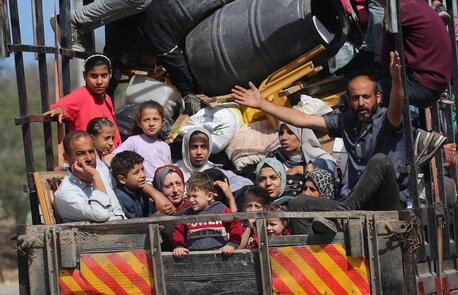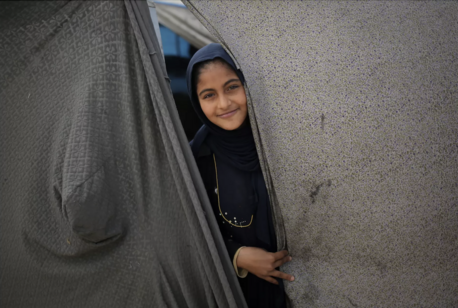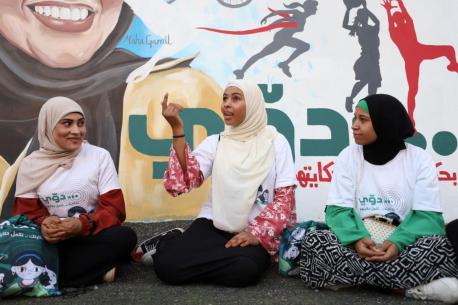
How UNICEF Is Empowering Girls in Egypt
Egypt's Dawwie initiative is amplifying the voices of girls and young women with support from UNICEF. Here's a look at how the program fits in with UNICEF's broader efforts to promote gender equality around the world.
Advancing gender equality by fostering communication and self-expression — and changing attitudes
"Dawwie" — an Arabic term meaning to "resonate with impact" — is an apt name for a program that gives kids in Egypt new ways to express themselves and engage with others, two important steps for advancing gender equality.
With support from UNICEF, the program — officially named the Dawwie National Girls' Empowerment Initiative and implemented by Egypt's National Council for Childhood and Motherhood in village schools, youth centers and universities — has already reached nearly 500,000 people across 21 governorates.
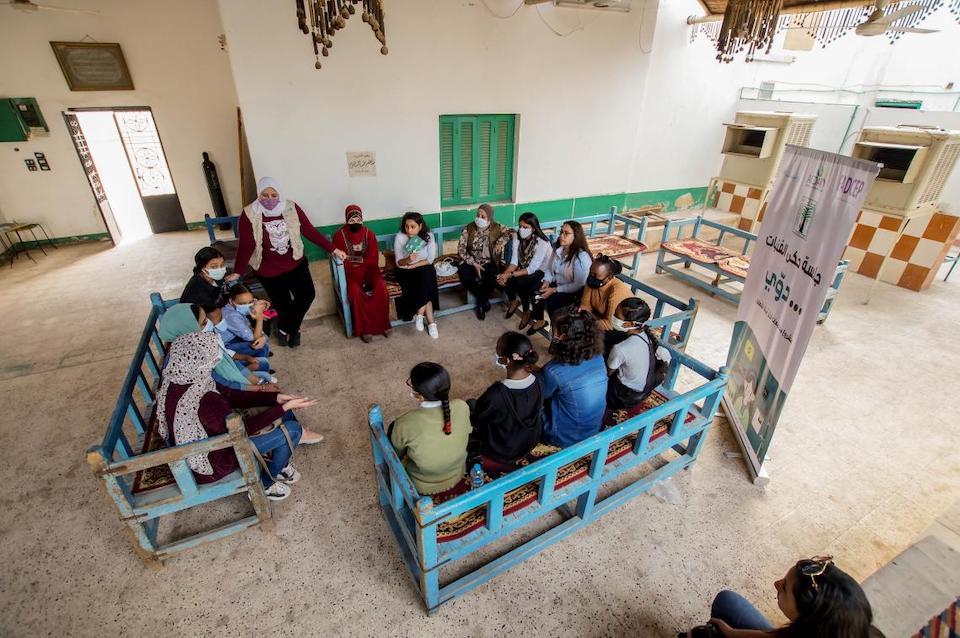
The program supports a variety of activities, from storytelling circles and interactive sports and theater to digital literacy training. There are opportunities for intergenerational dialogue and discussions with community leaders where girls can share their aspirations.
“I knew about Dawwie from my neighbor, and since I joined, I learn a new skill every day," says 12-year-old Sarah.
A program that involves girls — and boys
The different modes of communication are meant to foster self-expression, greater participation within families and communities and acceptance of diversity and equality to alter how society views girls and how they view themselves. The program is open to girls and boys between the ages of 10 and 18.
“Dawwie is very beneficial for my children, and it is important to me that they participate in all the activities, which will help them to become the leaders of the future," says Hussein, 42, who has a daughter and a son. The family lives in Mansheyet Nasser, a traditionally conservative part of Cairo where Dawwie promotes sports to help shift gender stereotypes, and organizes theatrical performances that inform audiences of the dynamics of child marriage.
In safe, inclusive “Dawwie circles,” children meet regularly in Mansheyet Nasser’s youth center to exchange views and receive peer support on health, body issues, career and life aspirations and other topics in discussions guided by the Dawwie Storytelling Circle Kit.
“Parents should help their daughters, not discriminate between them and boys,” says 13-year-old Samaa, who has attended Dawwie circles in Aswan, Upper Egypt. “Why can’t I do something because I am a girl?”
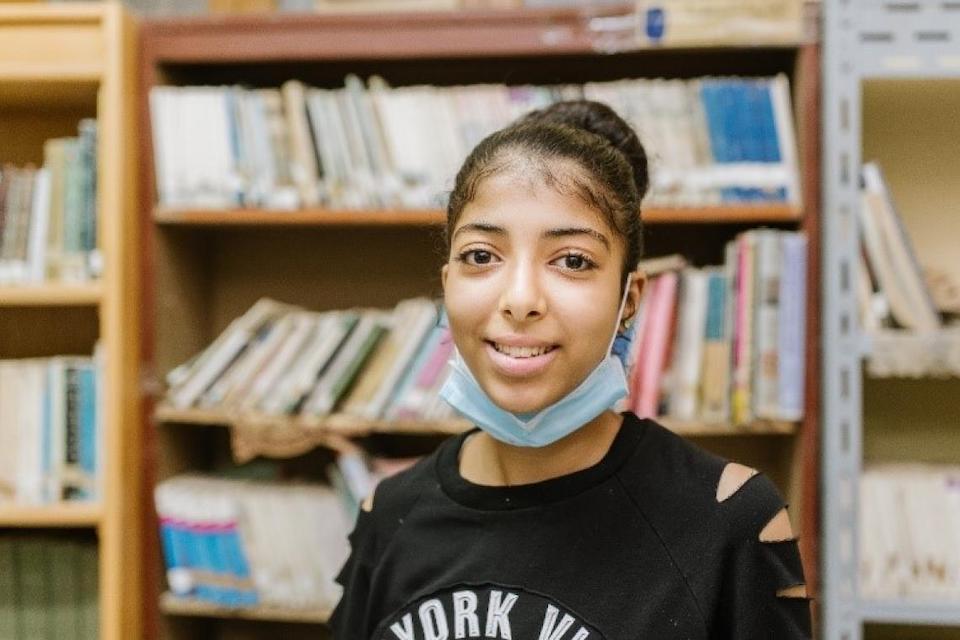
being, skills and aspirations as part of the Dawwie initiative supported by UNICEF. “I learned about the dangers of female genital mutilation from Dawwie circles, and I convinced my parents not to do this,” Shahd says.
Samaa narrates and stars in an award-winning short documentary film, “It Takes a Village", which also features two other young girls from Egypt, Noura and Alaa, whose hopes and obstacles reflect those shared by many Dawwie participants.
Hanan, Samaa’s mother, was so inspired by Dawwie’s impact on her daughter that she launched her own Dawwie circles at a school in Aswan, where she teaches students who are deaf and mute. The circles give the school’s teenage girls a safe space to express their challenges and ask questions on topics such as puberty and female hygiene, Hanan says. “Their voices were heard."
'If [girls] do better, we all do better'
In a recent podcast interview with UNICEF Ambassador Alyssa Milano, Dina Heikal, UNICEF Egypt's Social and Behavioral Change Officer, said she believes gender equality is attainable in Egypt — a country where the majority of women still need permission to leave their homes — because of initiatives like Dawwie.
Milano, a UNICEF Ambassador for 20 years, spoke of how she was inspired by Dawwie while visiting Egypt recently, and getting a firsthand look at the “magical” program she hopes other countries adopt.
One significant benefit of Dawwie, Heikal and Milano agreed, is that the boys who participate get an education in feminism. Something as simple as cheering on girls playing soccer becomes a lesson in young girls' strength and autonomy.
Another plus is how the initiative has facilitated intergenerational conversations, an area where major communication gaps are common.
“If [girls] do better,” Heikal said, “we all do better.”
UNICEF has long championed this belief. With its Gender Action Plan, UNICEF continues its commitment to global gender equality, which is already well integrated across all major program areas. In child health, for instance, UNICEF supports community activities promoting the elimination of FGM, reaching millions of people in 18 countries. In child protection, UNICEF and partner-supported care and interventions for adolescent girls help prevent child marriage. And in education, UNICEF focuses on improving girls' access to early learning, primary and secondary school education.
